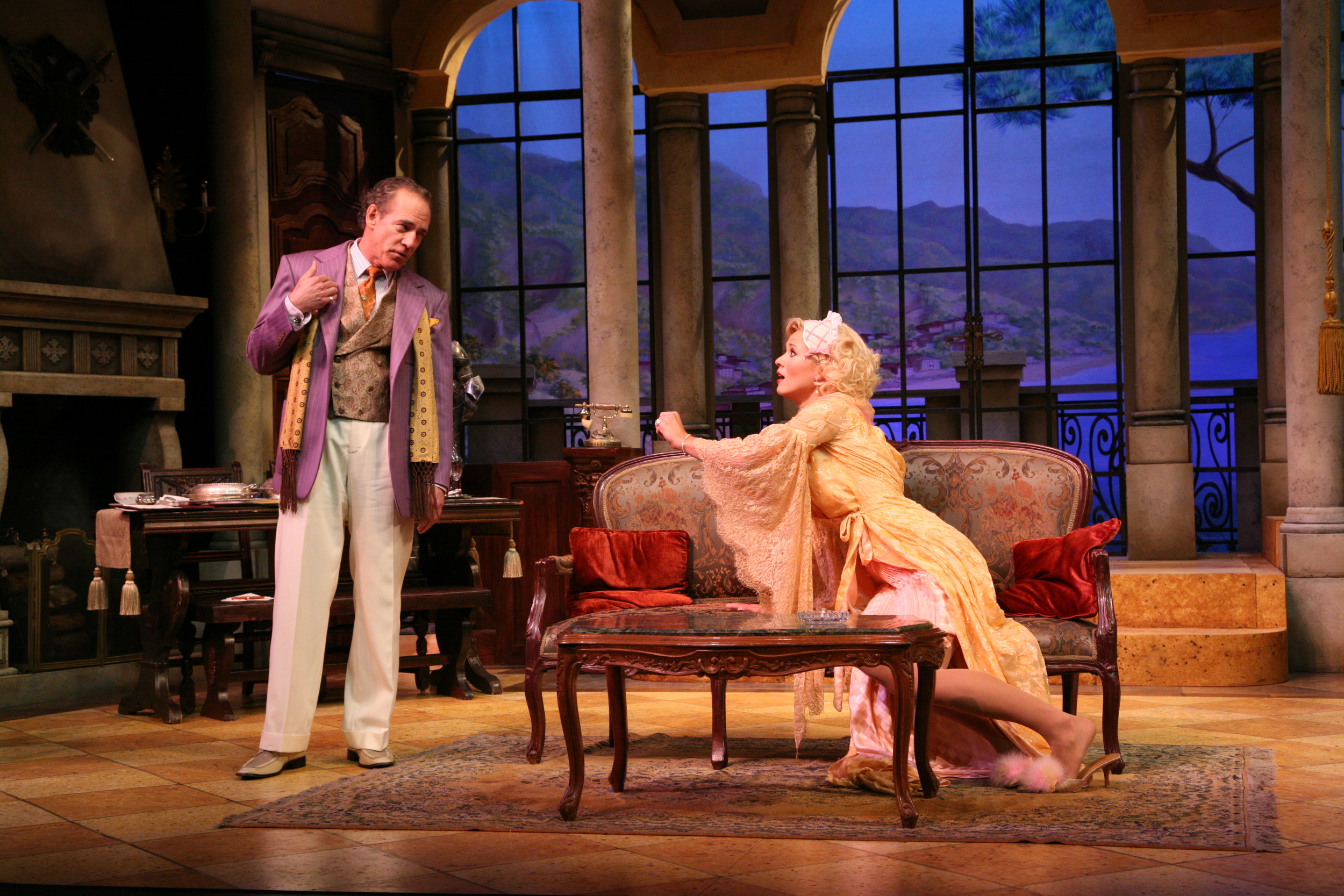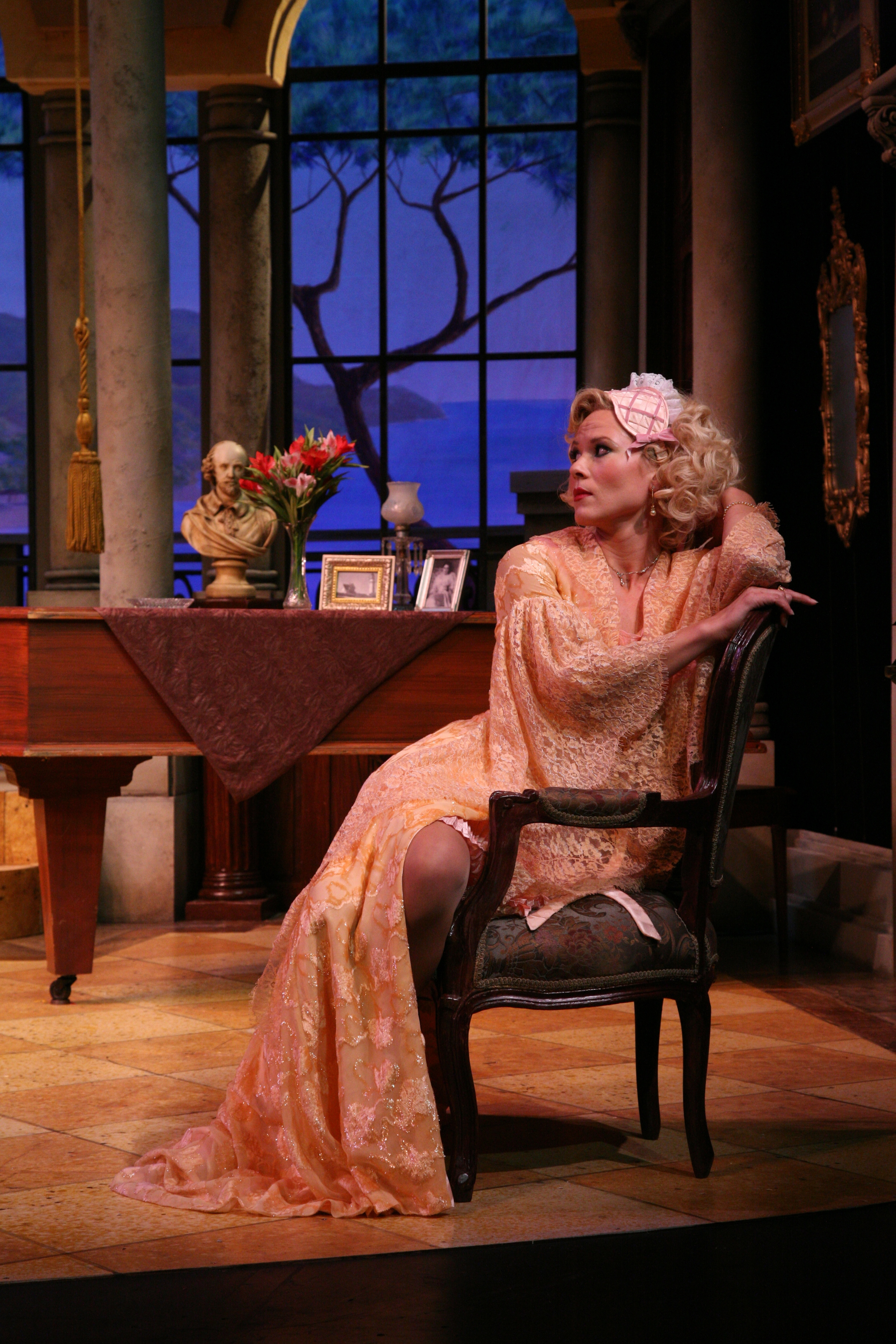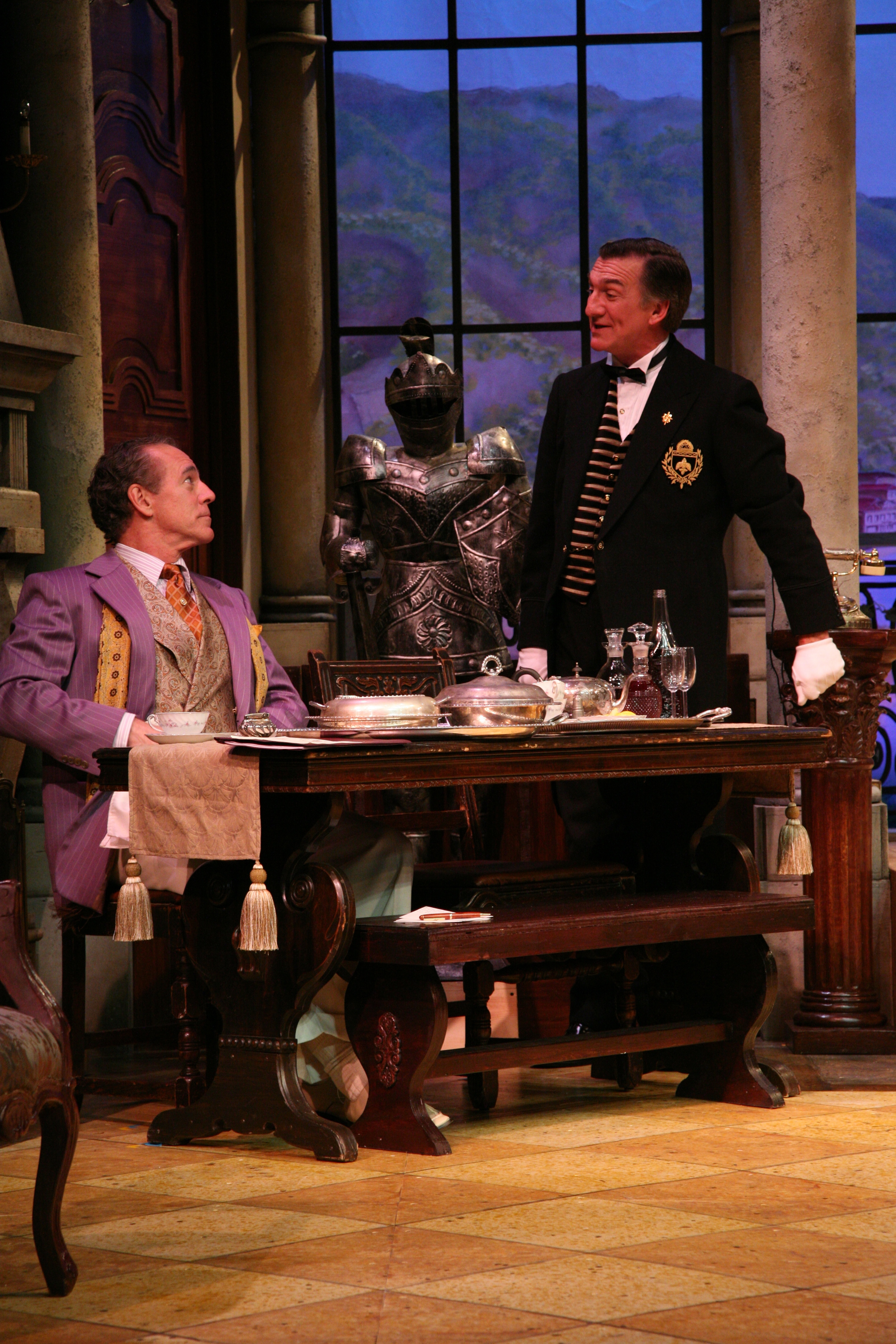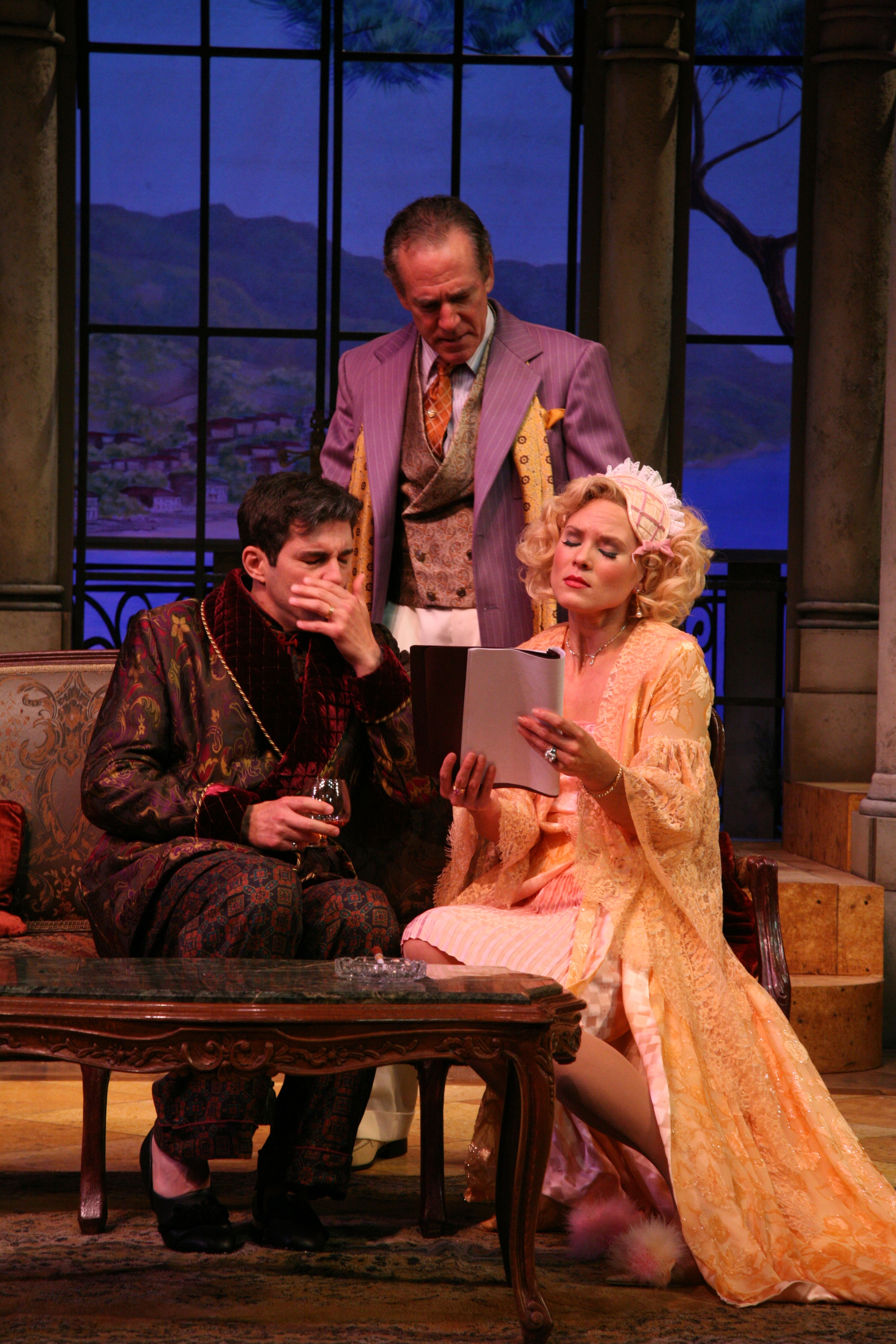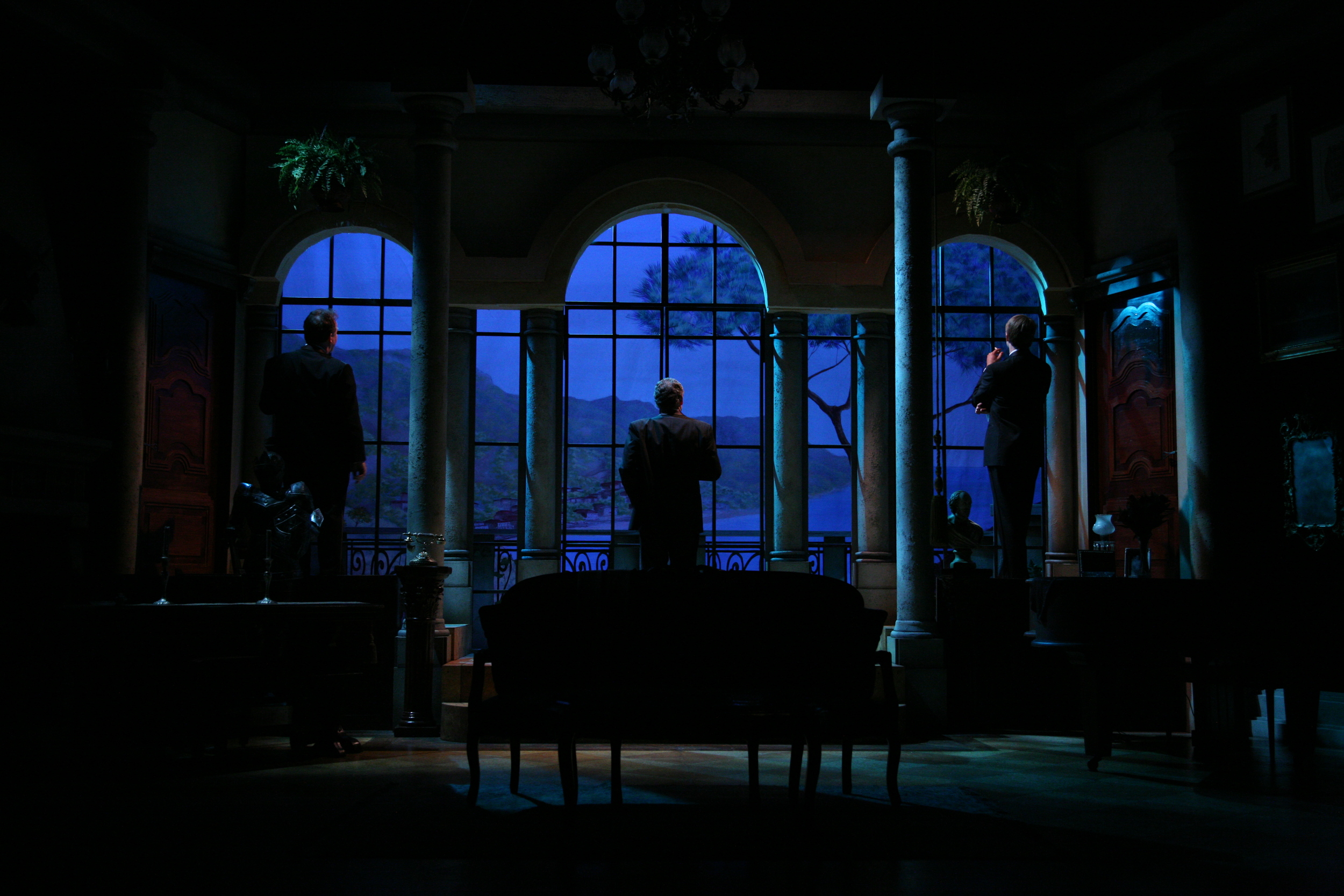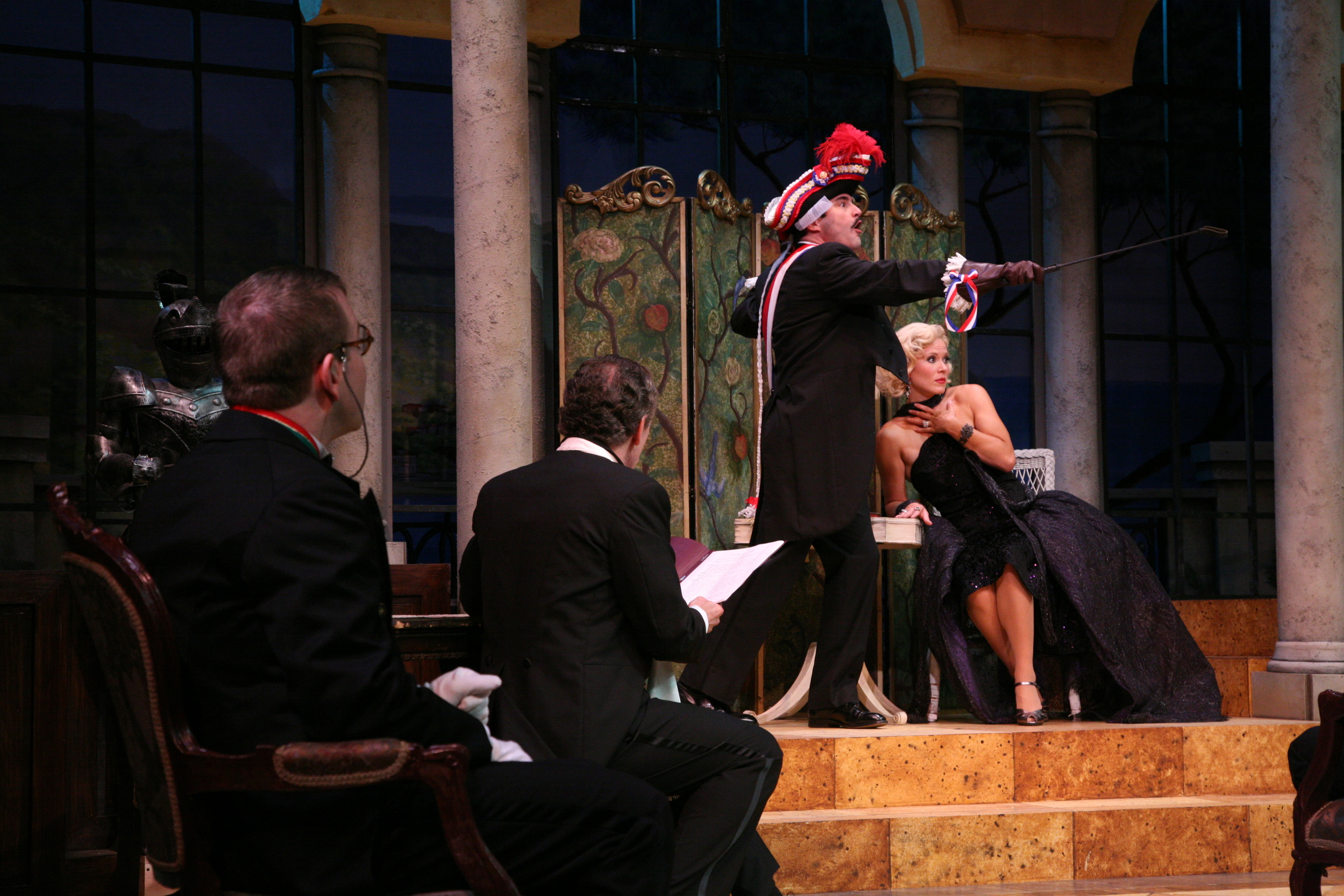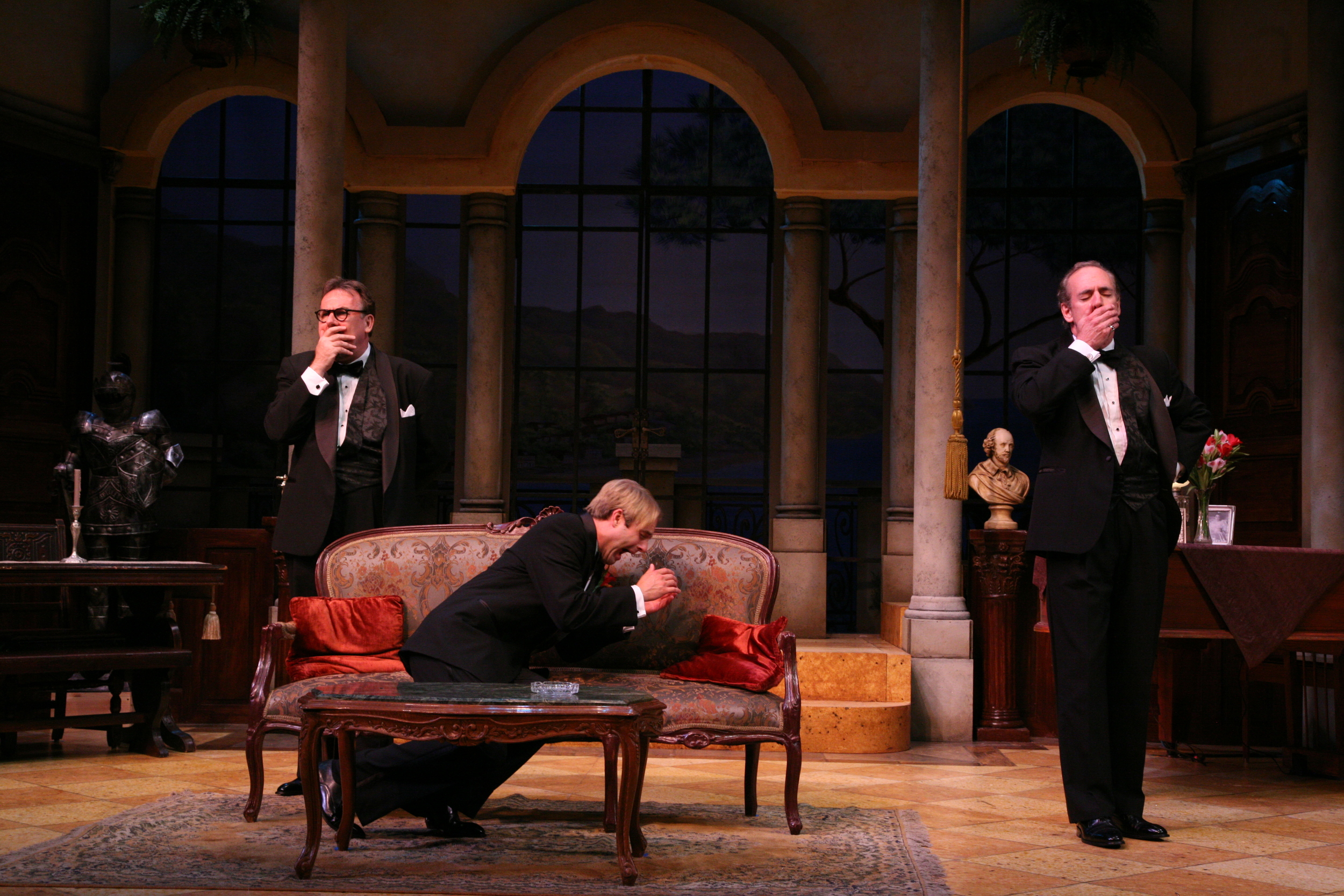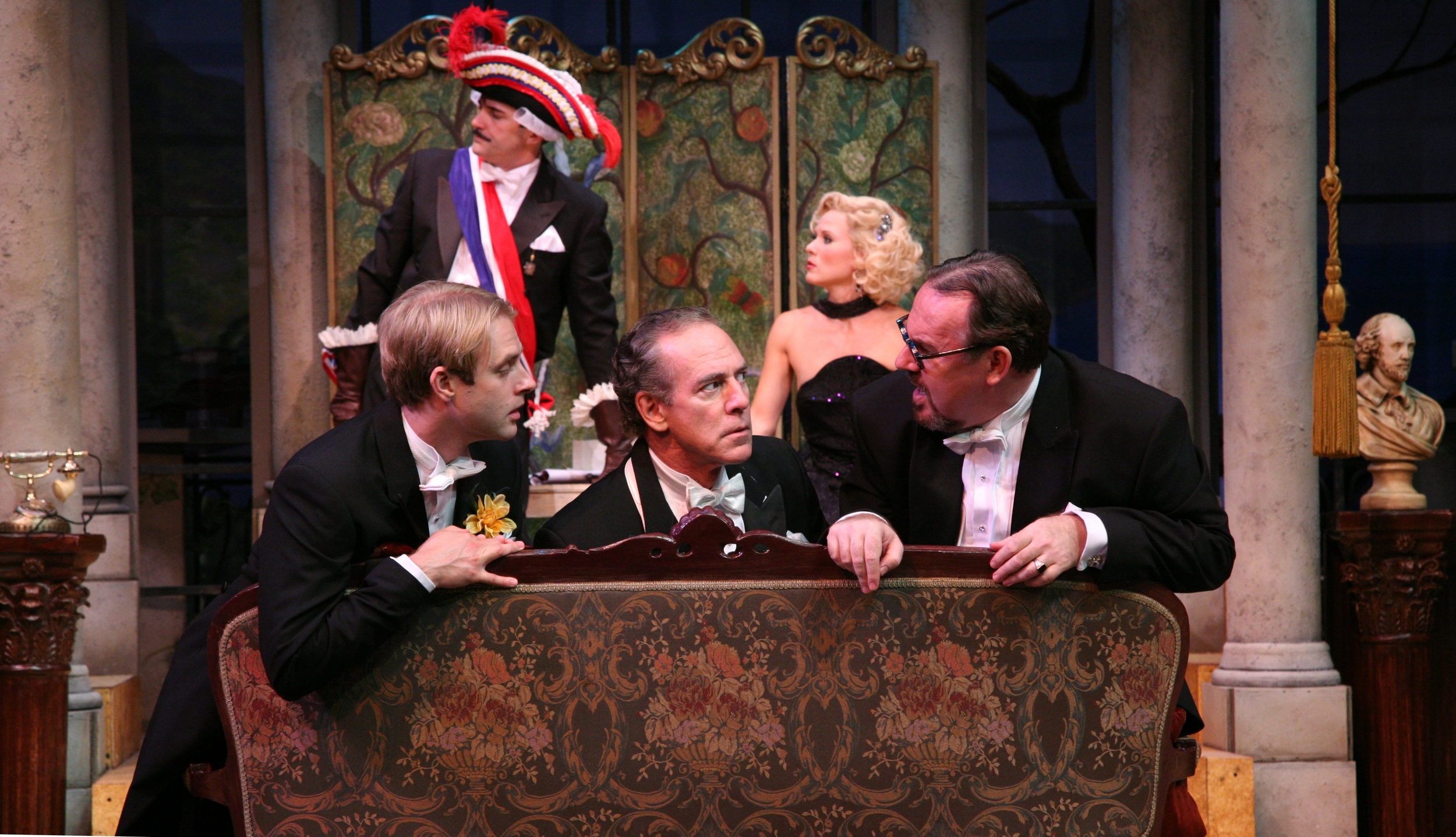“Discher’s staging is remarkably tight, leaving no room for yawns. the stylish production is an eye-candy feast.”
“Only seven actors are here to romp, but romp they do, thanks to director Joe Discher’s deft touch.”
“…director Joe Discher shows once again that he is equally at home in heavy drama (Of Mice and Men), the classics (Life of Galileo or perhaps Twelfth Night) or this little gem.”
By Ferenc Molnar
Adapted by P.G. Wodehouse
Directed by Joseph Discher
Scenic Design by Jesse Dreikosen
Lighting Design by Bruce Auerbach
Costume Design by Brian Russman
Sound Design by Joseph Discher
Production Stage Manager - Jennifer Grutza*
THE CAST
Mark Jacoby* | Sandor Turai
Colin McPhillamy* | Mansky
Jared Zeus* | Albert Adam
Caralyn Kozlowski* | Ilona Szabo
Robert Gomes* | Almady
John Little* | Dwornitschek
Greg Jackson* | Mr. Mell
*member Actor's Equity
The Play’s the Thing received its first Broadway production in New York City in November of 1926 at Henry Miller’s theatre, and ran for 313 performances. The show was revived in 1928 at the Empire Theatre. Soon after, it was successfully re-produced in England, France, Germany, Austria, Sweden, Norway, Denmark, Netherlands, Belgium, Australia, South America, Italy, and Hungary.
Molnar’s title is of course a reference to the Shakespeare’s Hamlet, but with a twist. In Hamlet, the play-within-the-play is supposed to expose the king in his guilt, but Molnar uses the convention to exonerate the leading actress. The idea for the story came to him when he overheard his wife with her German tutor repeating phrases of love in German.
“My wife (Lily Darvas) and I were stopping at the Hotel Imperial in Vienna. She was then learning to speak German. All day long she had to recite German classical plays. Just for practice, for hours on end. One afternoon an intimate friend called on me, and as we were chatting amiably, he suddenly jumped up. He had heard Lily’s voice in her room, which adjoined mine, saying in fluent German, ‘I love you, I love you! I shall die of love for you!’ No wonder he jumped. And I jumped. Both of us went to the door, and upon opening it, found Lily quietly sitting in her rocker reciting declarations of love to her tutor. Utterly harmless, yet how disturbing it sounded!…That’s how I got the idea. But you can just as well say I got it from Hamlet, from that familiar line, you know.”
Among the myriad of themes he wrote about in his novels and plays, Molnar was keenly interested in the exploring the thin and often disappearing line between reality and illusion, between life and the stage. There were many times he tried to stretch the parameters of these worlds, or one's perception of it. The Play’s the Thing is no exception. An overheard conversation becomes a scene on a stage. Truth becomes illusion and the theatrical pretense becomes reality. So although it is delightful, it is not merely a frothy drawing room comedy, but a play that both exposes and embraces theatrical conventions, creates the effect of encountering several levels of reality at once, and shows us that we are all “merely players”.
**********
Born in Budapest, on January 12, 1878, Ferenc Molnar was probably the greatest playwright to come out of Hungary. He was celebrated the world over at the height of his fame in the 1920’s and 30’s. The American success of his play The Devil (1908) was phenomenal. Four companies played it simultaneously in New York; two in English, one in German, and one in Yiddish. Molnar’s greatest influences were Arthur Schnitzler, Oscar Wilde, Pirandello, and George Bernard Shaw. He has often been referred to as the Hungarian Noel Coward, and his plays were known for their masterly theatrical technique and their sparkling dialogue.
Eighteen Molnar plays have been done on Broadway. His most popular plays are Liliom (1909); later adapted into the Rodgers and Hammerstein musical play Carousel in 1945, The Swan (1920), and The Guardsman (1910); presented in a musical adaptation, Enter the Guardsman at the Shakespeare Theatre of New Jersey in 1999 with Robert Cuccioli, Dana Reeve, and Mark Jacoby as the Playwright.
One year before The Play’s The Thing was produced, Molnar wrote: ‘1878, I was born in Budapest. 1896, I became a law student at Geneva. 1896, I became a journalist in Budapest. 1897, I wrote a short story. 1900, I wrote a novel. 1902, I became a playwright at home. 1908, I became a playwright abroad. 1914, I became a war correspondent. 1916, I became a playwright once more. 1918, my hair turned snow white.
1925, I should like to be a law student in Geneva once more."
In 1939, Molnar emigrated in to the United States to escape the Nazi persecution of Hungarian Jews during World War II. He settled in New York and lived there until his death on April 1, 1952.
When asked how he became a writer, Molnar said, “In the same way that a woman becomes a prostitute. First I did it to please myself, then I did it to please my friends, and finally I did it for money."
**********
P. G. Wodehouse (Sir Pelham Grenville Wodehouse), considered by many to be the quintessential English humorist, was born on October 15, 1881, in Guildford, Surry, England. Wodehouse wrote more than 90 books, and collaborated on more than 30 plays and musical comedies; one notable theatrical contribution being his lyrics for the hit song “Bill” in Show Boat. He is best known for his Blandings Castle novels and as the creator of the butler Jeeves, "that subtle master of prudence, good taste, and ineffable composure."
Not unlike the stock characters of Roman comedy, Wodehouse’s servants are frequently far cleverer than their master. This is especially true of Jeeves, “the source of all solace”, who always pulls his employer out the direct scrapes. In Right Ho, Jeeves, Wodehouse wrote: “one thing I have never failed to hand the man. He is magnetic. There is about him something that seems to soothe and hypnotize. To the best of my knowledge, he has never encountered a charging rhinoceros, but should this contingency occur, I have no doubt that the animal, meeting his eye, would check itself in midstride, roll over and lie purring with his legs in the air.” One can see touches of Jeeves in Dwornitschek, the footman in Wodehouse’s adaptation of The Play’s the Thing.
Although Wodehouse and his novels are considered quintessentially English, from 1924 on he lived primarily in France and the United States. He was profoundly uninterested in politics and world affairs. When World War II broke out in 1939 he remained at his seaside home in France, instead of returning to England, apparently failing to recognize the seriousness of the conflict. He was subsequently taken prisoner by the Germans in 1940 and interned by them for a year, first in Belgium, then at Tost in Upper Silesia (now in Poland). He is recorded as saying "If this is Upper Silesia, one must wonder what Lower Silesia must be like..."
While at Tost, he entertained his fellow prisoners with witty dialogues. When released from internment, he used these dialogues in a series of radio broadcasts aimed at America (but not England) that the Germans persuaded him to make from Berlin. Wartime England was in no mood for light-hearted banter, however, and the broadcasts led to many accusations of collaboration with the Nazis and even treason. An investigation by the British security service MI5 concluded that Wodehouse was naive and foolish but not a traitor.
The criticism, however, led Wodehouse and his wife to move permanently to New York. He became an American citizen in 1955, and never returned to his homeland. He was knighted in 1975 at the age of 93, but his health was so poor his doctor forbade him to make the journey to England from America. His career, which spanned seventy years, ended on February 14 of the same year in his hospital bed after “a good morning’s work” on his latest novel.
"I go in for what is known in the trade as 'light writing' and those who do that – humorists they are sometimes called – are looked down upon by the intelligentsia and sneered at." --P.G. Wodehouse
“Has anybody ever seen a drama critic in the daytime? Of course not. They come out after dark, up to no good.” --P.G. Wodehouse
**********
Victorien Sardou (1831 - 1908) is perhaps best remembered today for the play La Tosca (1887) on which Giacomo Puccini's opera Tosca (1900) is based. The fact that Sardou is chosen to be the playwright of the play-within-the-play is a humorous dig and a bit of an inside playwright's joke. George Bernard Shaw coined the dismissive term "Sardoodledum" in The Saturday Review, June 1, 1895, deriding the playwright's high-class melodramas. Shaw believed that Sardou's contrived dramatic machinery was creaky and that his plays were empty of ideas. Sardou wrote many plays for Sarah Bernhardt and was very popular, but was the source of much derisive joking among other writers.
